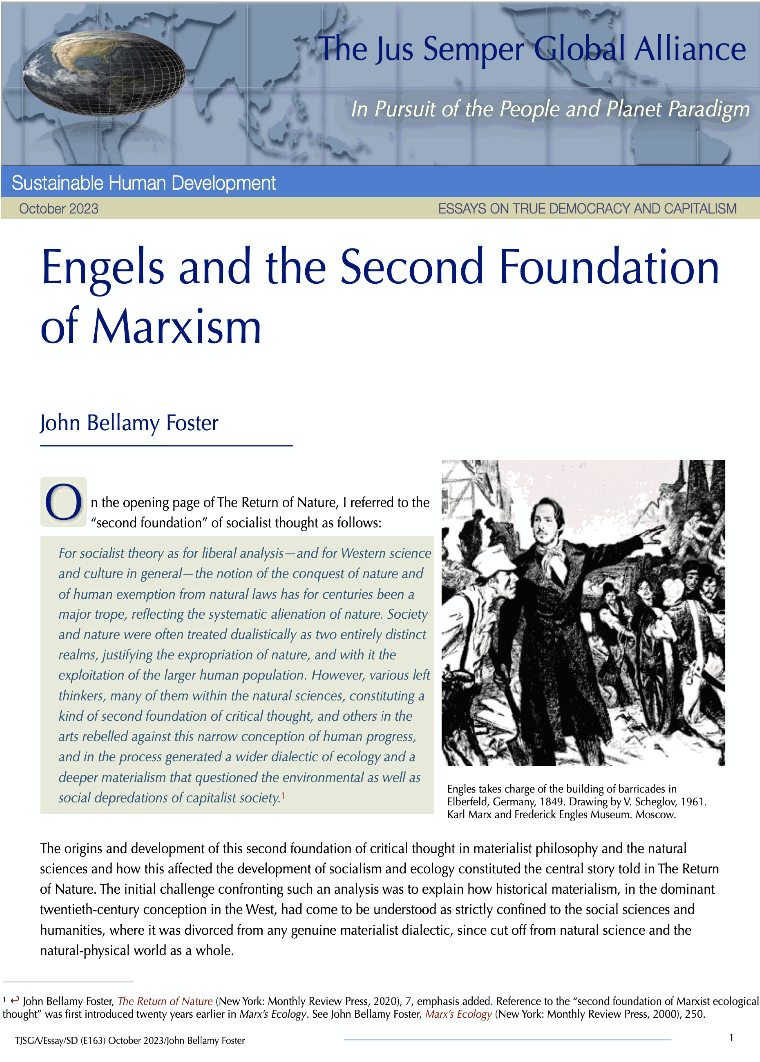Yet Engels, unlike Marx, devoted a whole book to the origins of women’soppression: The Origin of the Family, Private Property and the State, which challenged the accepted view of the nuclear family as natural and universal. It remained the go-to text for many earlier socialist women, such as Eleanor Marx, Clara Zetkin, Rosa Luxemburg, and Alexandra Kollontai, as well as those of the generations who came later, such as Claudia Jones and Angela Davis. On the centenary of the publication of The Origin of the Family, feminists of different persuasions thought Engels importantenough to devote a volume to reassessing his legacy.5 If one includes also Engels’s book on nineteenth-century working-class life in Manchester, described by Eric Hobsbawm as pathbreaking and which contained prescient insights into changing gender roles, the case that Engels has little to offer regarding gender oppression simply does not stand up. As I will argue here, Engels’s tools of analysis are vital to us understanding—and finding ways out of—gender oppression today.
For a full read of this commentary, click here or on the picture to download the pdf file.
|
- © The Jus Semper Global Alliance

| Home |  | Resources |  | Economic Data |  | Engels for Our Times: Gender, Social Reproduction, and Revolution? |


